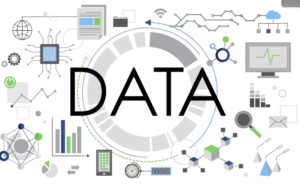In the digital era, where information is king, businesses and organizations are sailing through vast oceans of data. The challenge lies not just in collecting this data but in extracting valuable insights that can steer decision-making and strategy. This is where Big Data analytics tools come to the forefront, serving as compasses in the complex voyage of data analysis. In this exploration, we’ll delve into the world of Big Data analytics tools, understanding their significance, and highlighting some key players in this transformative field.

Understanding Big Data Analytics:
Big Data analytics involves the examination of large and diverse datasets to uncover patterns, correlations, and trends. The goal is to extract meaningful insights that can inform decision-making, improve operational efficiency, and drive innovation. Given the colossal scale and complexity of Big Data, specialized tools are essential for processing, analyzing, and visualizing the information effectively.
Also Read: 6 Must-Have Big Data Skills to Land Your Dream Job
Key Characteristics of Big Data Analytics Tools:
- Scalability: Big Data analytics tools must be scalable to handle the immense volume of data generated daily. Scalability ensures that as data grows, the tools can seamlessly adapt to the increasing demands without compromising performance.
- Data Variety and Flexibility: Since Big Data comes in various formats (structured, unstructured, and semi-structured), analytics tools need to be flexible enough to handle this diversity. Whether it’s text, images, or sensor data, the tools should accommodate different types of information.
- Real-Time Processing: The ability to process data in real-time is a critical feature. In today’s fast-paced environment, businesses require insights that are not just accurate but also timely. Real-time processing allows for quick decision-making based on the latest information.
- Advanced Analytics and Machine Learning: To uncover deeper insights, Big Data analytics tools often incorporate advanced analytics and machine learning capabilities. These features enable predictive modeling, anomaly detection, and other sophisticated analyses that go beyond traditional data processing.

Prominent Big Data Analytics Tools:
- Apache Hadoop: An open-source framework, Apache Hadoop, is a cornerstone in the world of Big Data. It facilitates distributed processing of large datasets across clusters of computers, making it a robust solution for storage and analysis.
- Apache Spark: Built for speed and versatility, Apache Spark is known for its in-memory processing capabilities. It excels in real-time data processing and is often used in conjunction with Hadoop for enhanced performance.
- Tableau: Tableau is a popular data visualization tool that transforms raw data into interactive and understandable visuals. Its user-friendly interface allows users to create insightful dashboards without extensive technical expertise.
- TensorFlow: Developed by Google, TensorFlow is an open-source machine learning library widely used for building and training artificial intelligence models. It is especially valuable for tasks like image recognition and natural language processing.
- Microsoft Power BI: Microsoft Power BI is another robust visualization tool that seamlessly integrates with other Microsoft products. It allows users to create interactive reports and dashboards, making data interpretation accessible to a broader audience.
The Impact of Big Data Analytics Tools:
The impact of Big Data analytics tools extends across industries, influencing decision-making processes and shaping strategic initiatives. From optimizing supply chains to enhancing customer experiences, these tools are instrumental in turning raw data into actionable intelligence.
In conclusion, Big Data analytics tools serve as indispensable companions in the journey of data exploration and interpretation. As businesses continue to navigate the seas of information, the right tools empower them to not only survive but thrive in the era of Big Data. The evolution of these tools promises continued innovation and a deeper understanding of the intricate landscapes hidden within the vast realms of data.
Also Read: Big Data vs. Business Intelligence: Unpacking the Key Differences


